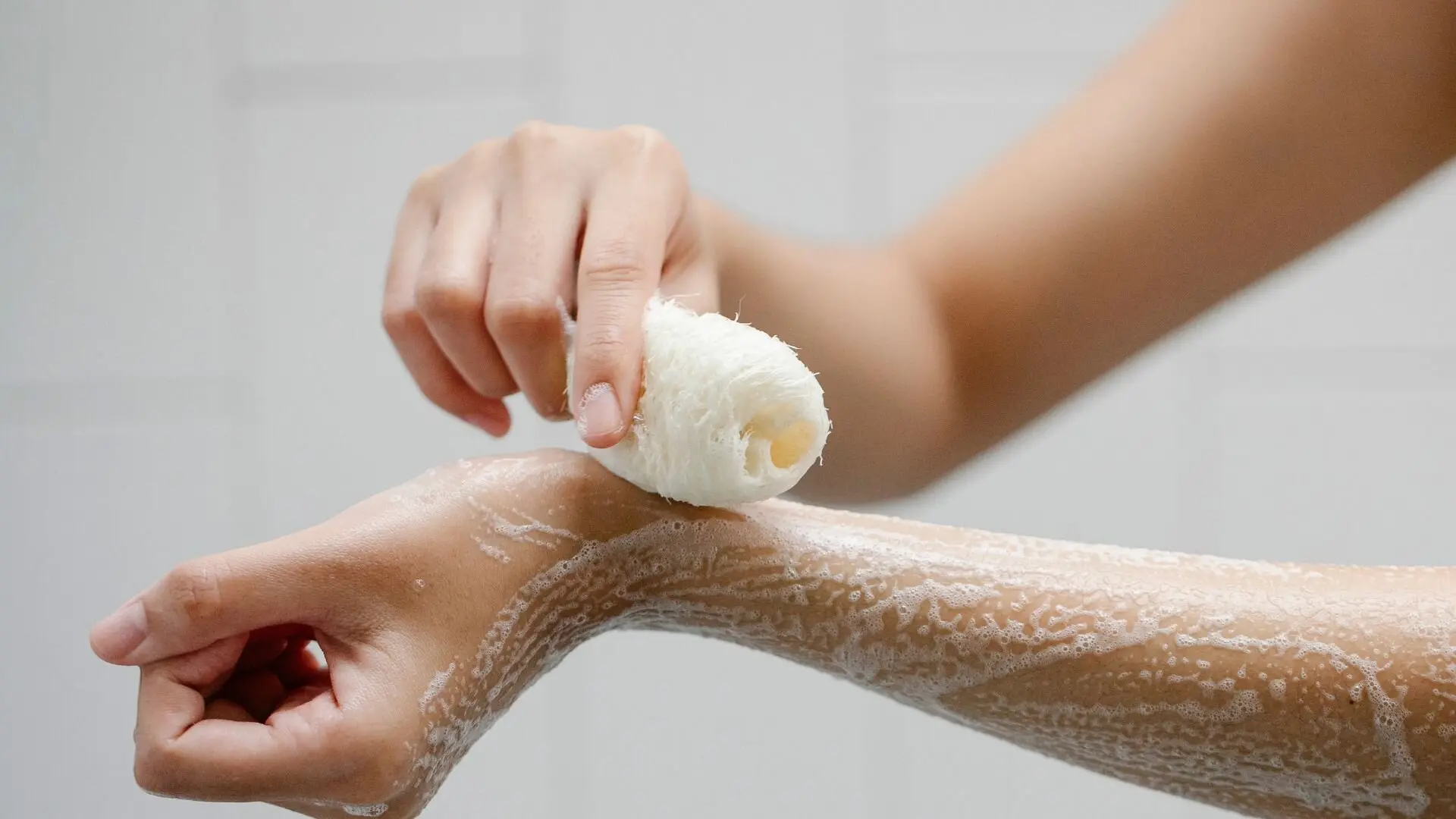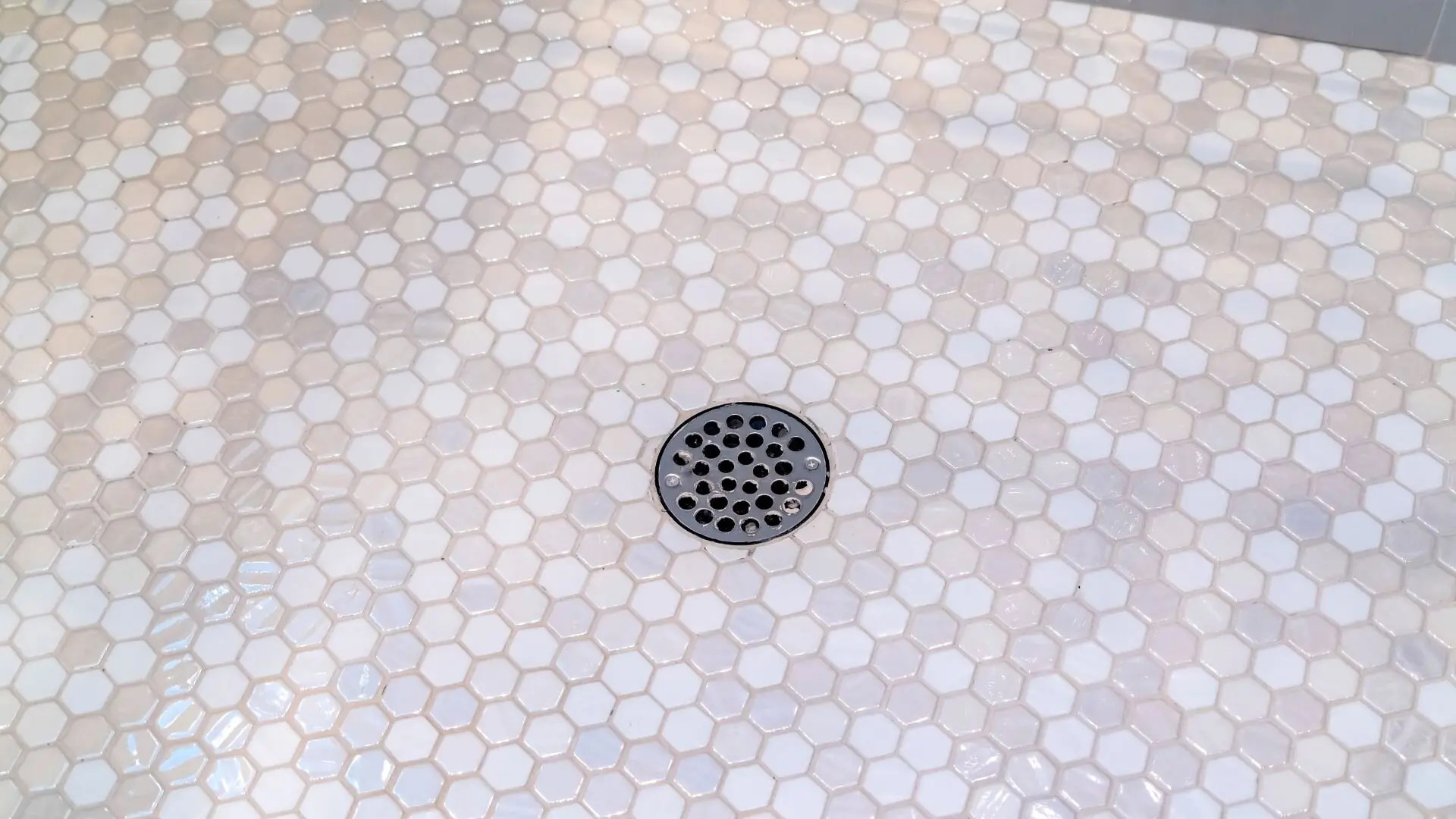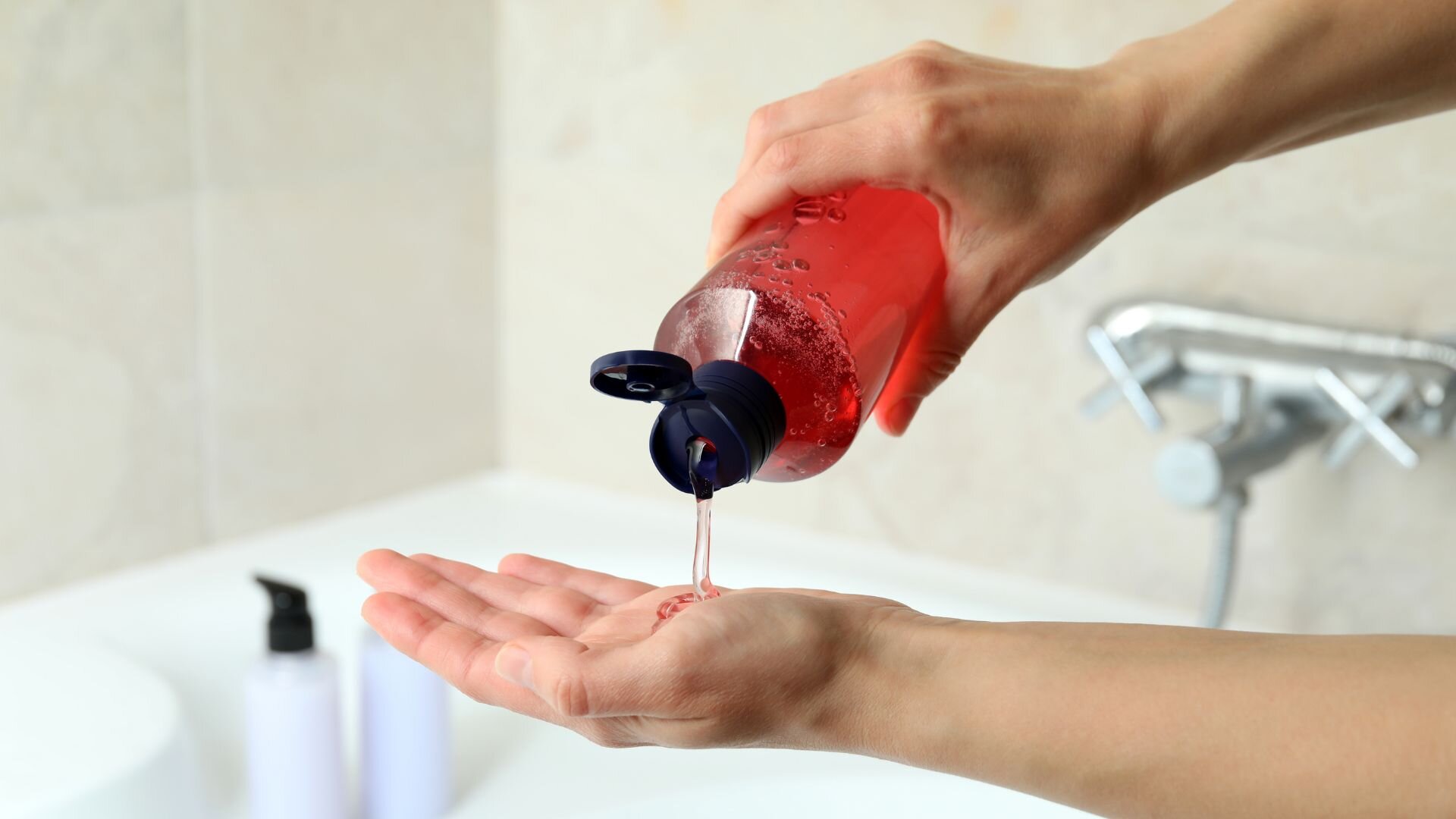Finding your shower drain blocked by soap scum and hair is a common problem in many homes. Over time, soap residue, body oils, and hair can accumulate in the drains, leading to blockages and standing water in your shower.
The short answer is yes, soap scum can block your shower drain. Keep reading to understand what causes these clogs, how to identify them, and some DIY methods to tackle a blocked shower drain.
What Causes Clogged Shower Drains?
A few main reasons contribute to blocked shower drains and soap scum build-up. Hard water is full of minerals like calcium and magnesium. When mixed with soap, it forms a sticky residue known as soap scum, which can clog your shower drains over time.

Many modern soaps, with ingredients like sodium lauryl sulphate, bind to hard water minerals and form soap scum. Showering lets this scum build up on your drain pipes. Plus, our bodies shed thousands of dead skin cells daily, which mix with body oils and stick to the scum, gradually blocking the drain. The moist, warm shower environment just makes it easier for the scum to stick around.
Additionally, hair is a common shower drain clogger. Showers collect stray hairs when we wash. Eventually, hair combines with soap scum to form a thick mass that can completely clog shower drains.
Signs of a Clogged Shower Drain
Several signs indicate a clogged drain:
- Water pools around feet instead of draining
- Slowly draining water post-showering
- Gurgling noises from the drain
- Partial clog worsens over time
- A foul odour emanating from the drain
- Hair catching in the drain cover
- Multiple drain covers are needed weekly
If you notice one or more of these red flags, a drainage blockage likely exists. Partial obstructions often degrade into complete clogging if not cleared in a timely manner as debris accumulates. Get ahead of intensifying shower issues by acting at the first signs of trouble. A quick fix now prevents expensive plumbing repairs later.
Unclogging a Blocked Shower Drain
Regular cleaning and hair catchers can prevent shower clogs. But for existing blockages, here are DIY unclogging methods:

Drain Snake
A drain snake or auger removes hair and debris, clearing mild to moderate blockages. Boiling water flushed down pipes can dissolve accumulated soap scum and residue, helping clear minor clogs.
Vinegar and Baking Soda
Mixing 1 cup baking soda and 1 cup white vinegar creates a fizzing reaction that breaks up gunk when poured down blocked drains. A wire hanger or zip-it tool reaches down the drain to pull out trapped hair and debris.
A Plunger
Plunging the drain with a toilet plunger loosens the clog by applying suction. If you notice that your drain opening—also called a drain strainer, shower drain hair catcher, or drain cover—has screws, grab a screwdriver and remove it. Removing the shower drain cover and using long-nose pliers lets you pull out hair and debris caught behind it.
When to Call a Professional Plumber
Suppose efforts don’t fully clear the clogged shower drain,l a plumber. You should also speak to a professional about whether the shower has significant standing water pooling, water drains very slowly throughout the plumbing system, or there is a persistent foul odour from the shower or other drains.
A plumber has the proper snakes, augers, jetting equipment, and cameras to clear stubborn clogs. They can thoroughly inspect pipes and systems for damage or improper installation needing repair.
Preventing Clogged Shower Drains
Keeping your shower drain clog-free is vital for everyday bathroom use and long-term plumbing health. Beyond the basic steps, be cautious about what you let go down the drain. Products with oils, waxes, and conditioners can harden and cause clogs. Choose shower products marked as "septic-safe" or "plumbing-friendly" to help prevent these problems.

Additionally, it is a good idea to regularly inspect and clean your shower drain stopper or strainer. Hair and soap residue can accumulate on these fixtures, making them less effective. SimpUnscrewsnap off the stopper according to the manufacturer’s instructions and use an old toothbrush to remove debris.
If intervention isn’t enough, and you notice the water is dying slowly, consider a gentle mechanical approach before using chemical drain cleaners, which can corrode pipes. A plunger designed explicitly for showers can help to dodge minor clogs. For more stubborn blockages, a plumber’s snake or drain auger can be utilised to clear the obstruction.
Remember, consistency and early intervention are key to preventing clogged shower drains. By incorporating these simple steps into your cleaning routine, you can keep your shower drain flowing freely and avoid the need for costly repairs. Regular vigilance is your best defence against the inconvenience of a clogged shower drain.
Stop Soap Scum from Bringing Your Shower Drain to a Halt
Please take precautions to prevent clogs before they happen. It’sYou canose the drain-clearing methods (pouring boiling water, homemade drain cleaners, etc.) that would work best for removing the shower drain clog in your home.
However, be careful about using commercial drain cleaners, for they may cause more damage to your pipes. We are confident that following the steps in this guide will quickly clear the drain blockages.
But if you’re experiencing drainage issues, use the drain cleaning methods above or call a plumber for professional drain cleaning and repair services. Don’t ignore standing water or slow drainage! Contact us today to schedule an appointment to unclog stubborn shower drain blockages.
At Fixed Today, we have the experience and tools to clear any blocked drain. Our professional technicians can inspect your pipes and keep your water flowing freely. Shower drain clogs don’t have to be a headache - call us today and get your problem fixed!
Soap Scum Blockages FAQs

Why does soap scum build up more in hard water?
As mentioned before, hard water contains a high amount of minerals like calcium and magnesium. These minerals bind with the ingredients in soaps and shampoos, forming the insoluble soap scum residue. Soft water doesn’t cause as much build-up.
Does liquid soap or bar soap cause worse soap scum?
Neither is necessarily worse. Both types contain surfactants that can leave a residue. However, liquid soap may rinse away more cleanly. Bar soap leaves more visible build-up on shower surfaces.
Can I use vinegar or baking soda to remove soap scum?
Yes, you can make an effective soap scum cleaner by mixing either vinegar or baking soda with hot water. Let it sit for a few minutes before scrubbing and rinsing. The acids in vinegar dissolve mineral deposits, while baking soda acts as a gentle abrasive.
How do I remove soap scum from glass shower doors?
Use a squeegee on glass shower doors after each use to prevent soap scum build-up. For existing scum, spray vinegar and scrub with a non-abrasive sponge. There are also glass-specific soap scum removers available. Avoid abrasive cleaners which can scratch the glass.
Should I clean my shower drain regularly?
Yes, it’s smarwiseclean shower drains regularly as part of a prevention strategy. Pouring baking soda and vinegar down the drain, followed by hot water, can help clear out accumulation. Use a drain snake monthly to remove any debris or build-up.
Can soap scum damage my bathroom surfaces?
If left for a long time, stubborn soap scum residues can damage surfaces like tile, vinyl, and fibreglass. The minerals in the scum can etch into the finish. Clean regularly to avoid permanent damage. On metal fixtures, it can cause corrosion over time as well.
Can professional plumbers remove soap scum build-up?
Ife remedies do not work, it’s wise to call a professional plumber. They have specialised tools and expertise to safely and effectively clear your drains without damaging your plumbing.














